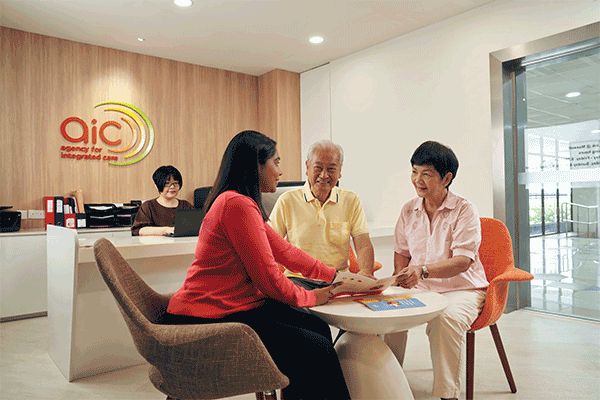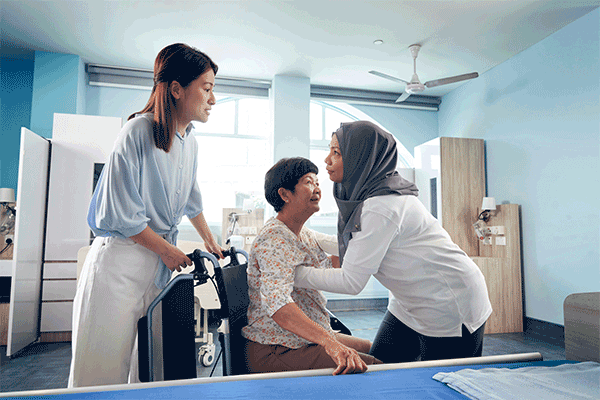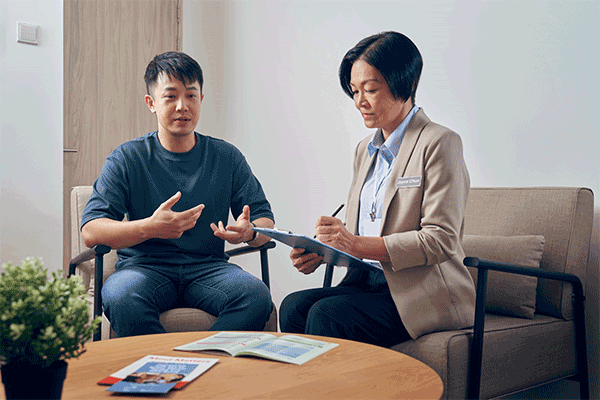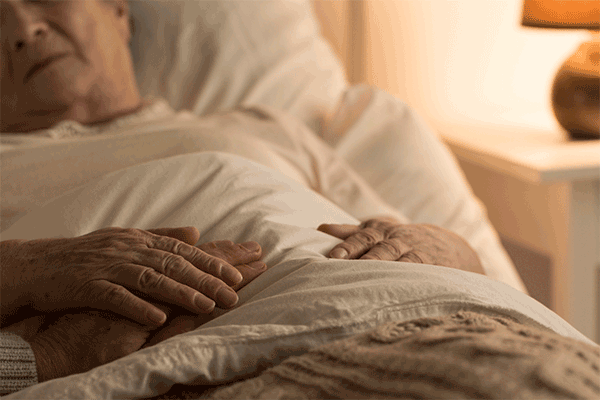Caregiving is a constant learning experience, and you are not alone. You can care with confidence.
AIC is here to support your caregiving journey with resources because #WeSeeYouCare.

Preparing for discharge & care at home
Access tips and resources to create a safe space with appropriate support at home.

Learn to Care Better
Caregiving is a continuous learning journey. You can equip yourself with knowledge and skills to support your loved one.

Caring for Yourself
Caregiving isn’t doing it all by yourself. Seek support and prioritise your own well-being.

End-of-Life Preparation
Navigating end-of-life care can be overwhelming; early conversations ensure readiness and compassionate support for your loved one.

Guides & Resources
Access the resources and tools to equip your caregiving journey.
Are you caring for a loved one with disability or special needs? Explore the Caregiver Learning Roadmap for essential resources and guidance.
